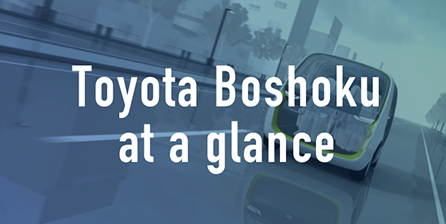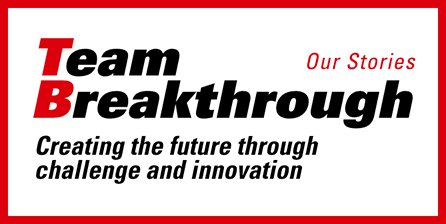Environmental Management
Basic approach
The Toyota Boshoku group implements environmental management activities on an on-going basis that include convening sessions for the safety, health and environmental committee in the respective regions worldwide to confirm progress on environmental initiatives, verifying cases of improvement via genchi-genbutsu (Go, see & study) and actively implementing cross-organizational deployment best practices. In addition, we are providing education to people inside and outside the organization focused on environmental protection.
Promotion system
In April 2023 we appointed a Chief Carbon Neutral Officer (CCNO) in order to further promote our carbon neutrality initiatives. The Toyota Boshoku group is cooperating across various global regions, including with various working groups in the Japan region, to promote activities designed to help achieve carbon neutrality.

- Carbon Neutral
- Life Cycle Assessment
- Circular Economy
- Supply Chain Management
Environment Promotion Meeting
A meeting with the goal of sharing information and initiatives designed to achieve carbon neutrality. It also sets environmental targets, follows up on identified issues, and promotes environmental efforts on a global scale.
Participating members: All Chief Officers, including the President
Frequency of meetings: three times annually
Contents of discussion: Expansion of policies and action plans aimed at meeting the 2025 Environmental Action Plan’s various targets, as well as evaluation of progress made towards these targets.
- Strategy-led environmental efforts, such as energy savings, renewable energy, carbon offsets, emissions management, etc.
- Sharing information and directing activity on various issues, such as those relating to actions taken to reduce value chain GHG emissions
Regional Committee Activities
Committees in each region work together with the Environment Promotion Meeting to promote activities designed to help meet the targets of the 2025 Environmental Action Plan.
At this time, the following four areas of environmental activity are marked as priorities:
- Activities to ensure zero non-compliances and complaints*
- Activities to reduce environmental impact
- Activities for the management of chemical substances at plants
- Activities related to ISO 14001 certification
Although the environmental issues being dealt with at the state and regional level differ, the Toyota Boshoku group has set high standards for all of its activities, which can be managed and implemented by each committee.
- Non-compliances: In case oil, etc., has leaked into a public waterway at a level that exceeds legal, by law and agreement standard values
Complaints: In case of contact from a local citizen, government, etc., alleging physical damage or psychological effects on account of the company
Initiatives for Legal Compliance / Environmental non-compliance
In order to prevent environmental accidents and pollution, we conduct environmental risk management based on voluntary standards that are stricter than regulations require. In addition, we conduct risk management with value placed on the perspective of local people. Our environmental risk map is used in this regard. An environmental risk map is a tool to visualize risk around a plant and on premises, strengthen inspection standards and enable environmental patrols. Responsible persons at each plant carefully visualize risk and conduct patrols so that the latest information is always incorporated into the risk map.
Regarding atmospheric and water quality concerns, no major leakages occurred in fiscal 2024. However, one wastewater non-compliance* did occur during this time frame. In response, appropriate measures were taken, and company-wide efforts have been made to prevent similar issues occurring in the future. Additionally, the Toyota Boshoku group was not subject to any fines resulting from environmental accidents or violations of environmental regulations.
- denotes cases where substances such as oil have been discharged into surrounding/shared water systems at levels exceeding those set by laws, regulations, or other relevant agreements.
ISO14001
All business entities in Japan completed the transition to ISO 14001:2015, the new version of the standard, in fiscal 2019. In fiscal 2024, we were examined by internal and external audits at each site and completed our ISO14001 activities.
External audits
In fiscal 2024, we also were systematically examined by certification institutions in each country and region. All of the target factories were evaluated as "There were no nonconformities, and the requirements of ISO14001 are being properly operated."
Environmental risk management
Creating a management system for chemical substances
The Toyota Boshoku group is taking steps to manage chemical substances in all business activities from development and design to production and packaging.
| manegement area | Product | Packing/packaging materials | Work environment Surrounding environment |
||||
|---|---|---|---|---|---|---|---|
| Product development and Design | Mass-produced products | ||||||
| Material classification | With indications on drawing |
Component |
 |
||||
| Raw materials making up product |
Without impact on the environment |
||||||
|
With impact on the environment |
|||||||
| Without instructions on the drawing | Secondary materials |
Possibility of mixture in product, added to product |
|||||
|
Possibility of mixture in product not added to product |
|||||||
|
Packaging, and packaging materials |
|||||||
Activities to reduce emissions of chemical substances
In order to both prevent damage to the environment and protect the safety and health of the company members, the Toyota Boshoku group has created a list of “Toyota Boshoku Controlled Substances.” This list contains various chemical substances used in production which are either currently under restrictions or which may face restrictions in the future. Additionally, certain chemical substances that pose significant risks of harm to humans or to the environment, or which are subject to prohibitions on their production, have been designated “Toyota Boshoku Banned Substances,” and their use prohibited.
Regarding VOC*1 and PRTR*2-target substances,—both of which are classified as Toyota Boshoku Controlled Substances—the Toyota Boshoku group has reduced emissions by switching to water-based paint and by starting to transition to release agents made from components with low amounts of VOC and PRTR substances. Moving forward, we will continue to promote activities aimed at reducing the amount of chemical substances used and the amount of emissions from our plant.
Furthermore, the Group prohibits the use of CFCs, which are ozone-depleting substances, and does not use them.
- VOC: Volatile Organic Compounds (covers 100 substances designated by Japan’s Ministry of the Environment)
- PRTR: Pollutant Release and Transfer Register
PRTR substances / VOC emissions [Toyota Boshoku]
![Graph:PRTR substances / VOC emissions [Toyota Boshoku]](/_assets/img/sustainability/environment/management/manage/img5_3_01@global.svg)
Soil and groundwater contamination prevention initiatives
Toyota Boshoku makes continual efforts to prevent any contamination of soil and groundwater.
In 1996 an organochlorine substance was detected at above designated maximum levels at one of our business sites. After completion of the necessary cleanup continuous monitoring of the area was put in place. As well as this, explanations as to the monitoring situation were provided to local community meetings, and periodic reports were made to the relevant government agencies.
Additionally, cleanup of soil contamination identified at other site in 2008 and 2018 was successfully carried out via excavation and removal of the affected soil.
Furthermore, we carry out examination of sites (such as when acquiring new business sites or beginning construction of new plants) in line with the relevant laws and regulations of the nation in question.
Results of trichloroethylene measurements in fiscal 2024 (Environmental standard: 0.03mg/ℓ)
(Unit: mg/ℓ)
| Name of plant | Concentration in groundwater within grounds | Current status |
|---|---|---|
| Kariya Plant | 2021:ND–0.006 2022:ND–0.007 2023:ND–0.003 |
Below standard values Continuing to maintain |
- ND: Not detectable; under minimum quantity value (less than 0.002)
PCB treatment status
Polychlorinated biphenyls (PCBs) are now designated as prohibited substances. PCB wastes now being stored must be treated at designated treatment facilities no later than the end of March 2027.
In response to this, Toyota Boshoku completed treatment of all remaining PCB wastes in fiscal 2022.
Our Business Activities and the Environment (Resource Consumption for Business Activities and Emissions Causing Environmental Impact)
Resource consumption for business activities and emissions causing environmental impact in fiscal 2024
Energy and water consumption, GHG emission (Scope 1, Scope 2, and Scope 3), and waste generation data within the Toyota Boshoku group released on our website have been independently assured by KPMG AZSA Sustainability Co., Ltd. Please see the Independent Assurance Report for more detailed information.

- The sum total of the values given by multiplying the consumption of each category of energy by its corresponding unit of energy generation. For units of energy generation (excluding electricity usage), we use values from Japan’s Ministry of the Environment’ s “List of Calculation Methods and Emissions Coefficients with Regards to the Systems of Calculation, Reporting, and Announcements” (no official English translation could be found), with 1 MWh of electricity usage converted to 3.6 GJ, and the results aggregated.
- Since fiscal 2023 calculations have made use of data for the so-called “6.5 gases” (i.e. greenhouse gases other than CO2 emissions from energy use), as well as CO2 emissions from fuel used by Toyota Boshoku group vehicles.
- Direct greenhouse gas emissions from a company’s own fossil fuel combustion and industrial processes. Scope 1 emissions from the Toyota Boshoku group occur from the burning of LNG, city gas, LPG, kerosene, heavy oil and diesel oil.
- Indirect emissions from the generation of electricity, heat and steam purchased from other companies. Scope 2 emissions from the Toyota Boshoku group occur from the generation of purchased electricity, steam, and hot water.
- The amount of construction waste (1,023t) produced by subsidiary construction companies is not included here.
- Waste that is recycled for a fee
Energy consumption and water consumption, as well as GHG emissions (Scope 1, Scope 2, and Scope 3) and waste generation data that has been assured by an independent assurance provider is marked with this assurance symbol ( click here for details ).
Strengthening Environmental Education to Pass Environmental Conservation Activities on to Future Generations
Environmental education
Toyota Boshoku provided an opportunity to have fun learning about the environment by conducting on-site education at a local elementary school. In fiscal 2020, we introduced our environmental efforts and conducted experiments on wastewater treatment. Through group work, children deepened their understanding on the three themes of conserving energy, reducing trash, and valuing water.
In fiscal 2024, an exchange with Fujioka Minami Junior High School began when Toyota Boshoku purchased electricity generated by the school's solar power generation equipment as a Green Power Certificate*, using it at Toyota Boshoku's Technical Skills Training Center.
In October, we participated in the Fureai Festival held in the Fujioka area as a collaborating company of third-year students at Fujioka Minami Junior High School. We had five prior meetings with the students, and after they had gained an understanding of our environmental activities, headed to the actual Fureai Festival. At the Fureai Festival, we held a craft class together with junior high school students, where the participants made necklaces out of pieces of wood from thinnings generated by our reforestation activities and accessory containers out of disposed seat covers. We also welcomed third-year students from Fujioka Minami Junior High School to the Toyota Boshoku Technical Skills Training Center for an exchange meeting with Toyota Boshoku company members. After giving the students a chance to see for themselves and experience Karakuri devices in the plant, we introduced them to Toyota Boshoku's initiatives related to the SDGs.
The aim of this activity was to have junior high school students, who will be the leaders of the next generation, experience the SDG initiatives of a company that is well known to them, and learn the importance of acting with an awareness of the SDGs.
We will continue our exchange with Fujioka Minami Junior High School.
(Held seven times up until fiscal 2020; not held between fiscal 2021 and fiscal 2023 due to the coronavirus pandemic)
- Green Power Certificates are issued as a means of trading the environmental value of green power, separately from the electricity. Purchasing a Green Power Certificate allows the purchaser to be deemed to have used green power generated from renewable energy sources.
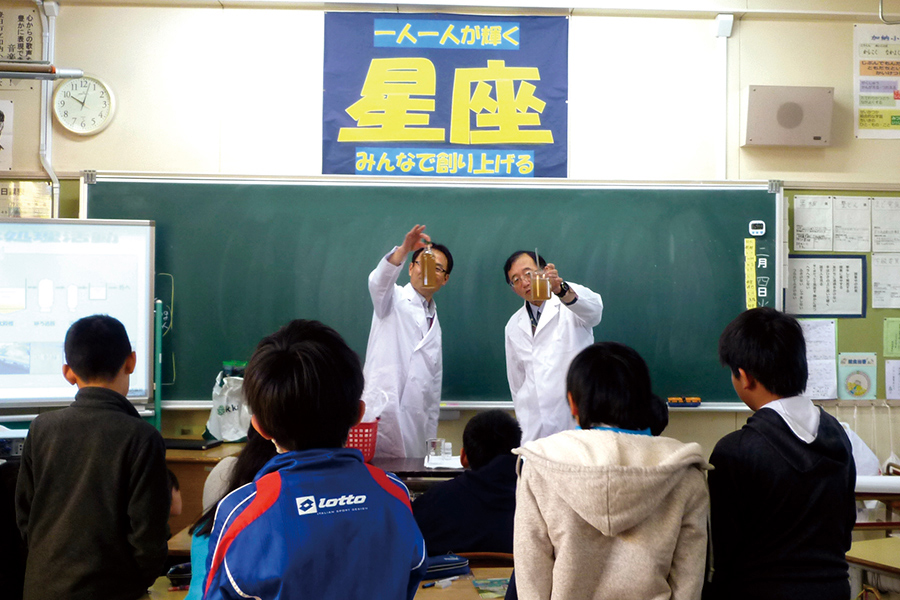
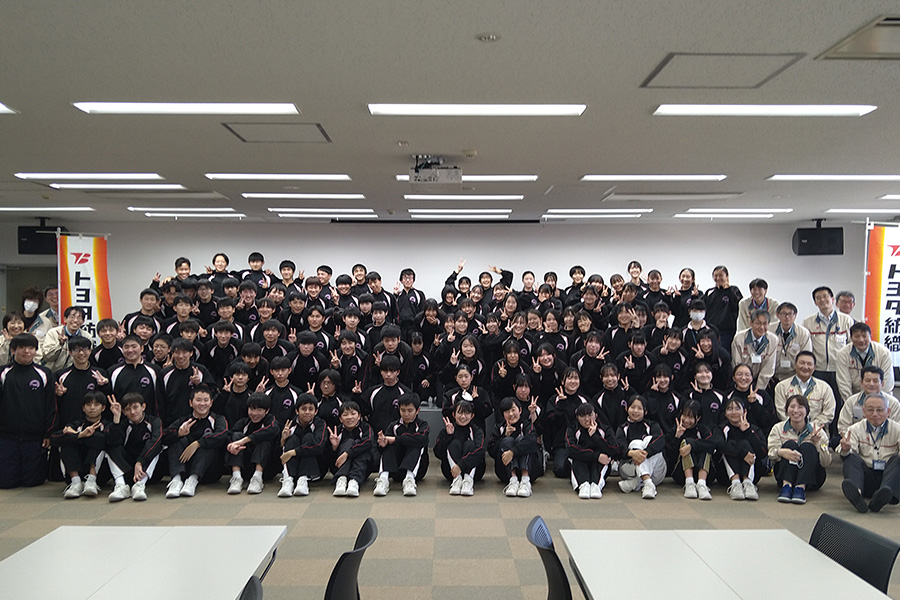
Initiatives in the local community
Toyota Boshoku held Toyota City-sponsored eco-tours of our Sanage Plant in 2018 and 2019. Parents and children living in the city of Toyota toured facilities such as wastewater treatment plants.
During the tour, we introduce the current state of water shortages worldwide. Participants also take part in experiments introducing the wastewater treatment process and water quality analysis method at Toyota Boshoku. It is an outstanding opportunity for conveying the importance of water.
We will continue to deepen our understanding of the environment and aim for a sustainable global environment together with members of the local community.
(Held twice up until fiscal 2020; not held between fiscal 2021 and fiscal 2023 due to the coronavirus pandemic)
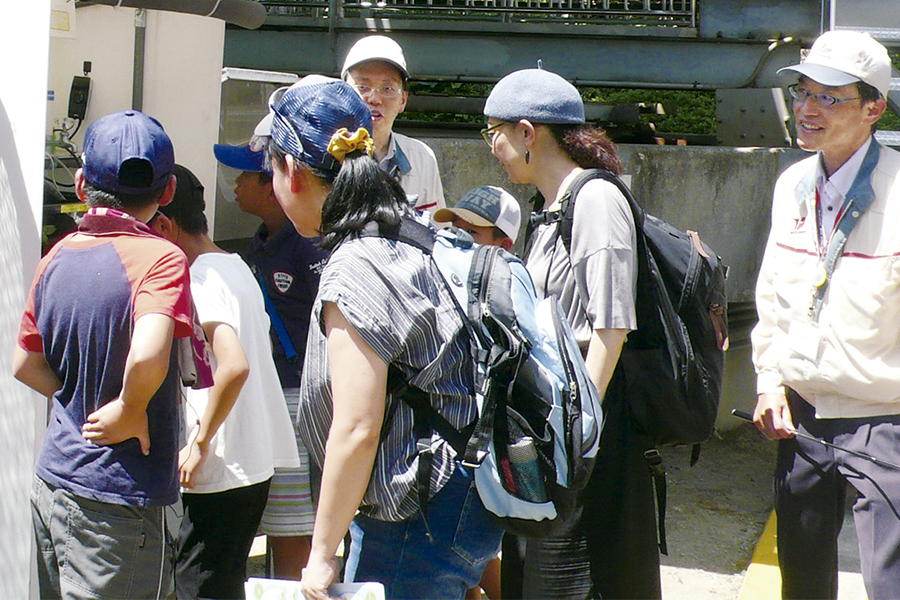
Internal Environmental Training
Toyota Boshoku carries out environmental training for company members in order to further improve their awareness of environmental issues.
Alongside training for new company members and members facing promotion, we engage in various other initiatives. For example, we run environment-related events annually during Environment Month in June, as well as various training initiatives, such as e-learning and ISO14001 training.
Example:
The environment lecture held in fiscal 2024
Date: June 2023 (Environment Month)
Lecturer: Mr. Naoki Adachi (CEO, Response Ability, Inc.)
Lecture Topic: Biodiversity, Climate Change, and Resource Recycling: The Sustainability Required of Businesses Today
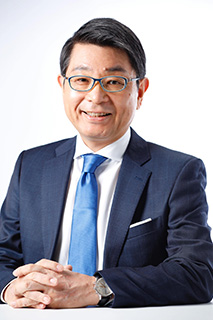
Working with and contributing to society
Toyota Boshoku actively participates in the Environmental Partnership Organizing Club (EPOC)-a partnership composed of around 250 large corporations in Japan’s Chubu region. Through our participation in EPOC activities, such as inspections and workshops, we are contributing to the creation of a circular economy.
Toyota Boshoku is also a member of the West Mikawa Ecosystem Network Conference-an environmental group operating in central Japan-and works together with industry, government, academia, and local environmental groups as part of our initiatives to both preserve rich natural ecosystems and help local communities coexist with nature.


